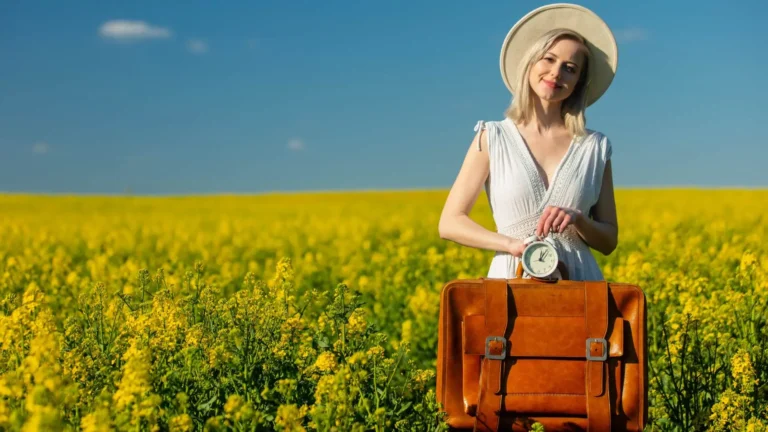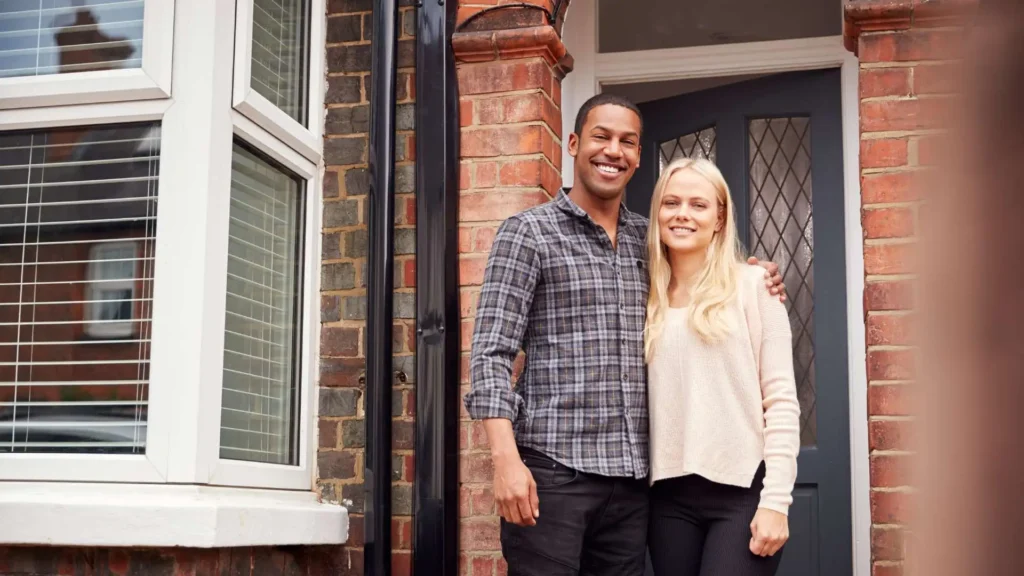Table of Contents
When you think back on your travels, what stands out most vividly? For some, it’s the taste of street food eaten on a curbside in Bangkok, costing no more than a few dollars. For others, it’s the glass of champagne savored on a balcony at a luxury resort overlooking the ocean. The memories last, but the price tags often fade.
This raises an age-old debate: do you make better memories on a budget trip, where every dollar stretches into adventure, or on a luxury trip, where comfort and indulgence shape the experience?
The answer isn’t simple, because memory isn’t built from cost alone. It’s built from novelty, connection, and emotion. Let’s explore budget vs luxury travel and how each contributes to memory-making, and how you can decide what’s right for your next journey.
Why Travel Memories Matter More Than Price Tags
When people reflect on past vacations, they rarely mention the cost. Instead, they talk about the sunsets, the laughter over meals, the surprising detours, and the people they met along the way. Positive psychology research backs this up: we remember vacations most vividly through emotional moments, not the price we paid.
A budget traveler might remember late-night conversations in a hostel common room, while a luxury traveler might recall the peace of a private villa overlooking the ocean. In both cases, the cost fades while the memory endures. This makes the budget versus luxury debate less about who spends more, and more about who invests in experiences that feel meaningful.
Read: How to Build a Holiday Travel Budget
How Travel Memories Outweigh the Money Spent
Long after the trip is over, travelers rarely remember exact costs. Instead, they recall the stories and emotions tied to their experiences. Psychology research supports this: our brains encode memories more strongly when tied to novelty, emotion, or social connection.
- A family laughing over street tacos in Mexico.
- A couple sipping champagne on a balcony overlooking Paris.
- Friends crammed into a budget hostel, swapping stories until 2 a.m.
All three cost vastly different amounts, but each can become a “highlight memory.” This is why the real debate isn’t about money, but about which travel style aligns with your values and creates those moments that last.
The Case for Budget Travel
Budget travel has fueled generations of adventurers, backpackers, and families determined to see the world without breaking the bank. Its appeal lies not just in affordability, but in the richness of experience that comes from navigating a trip creatively.
Why Budget Travel Often Feels More Memorable
Budget trips force you into the fabric of everyday life in your destination. You eat where locals eat, take buses instead of private cars, and stay in small guesthouses where hosts become friends. These details build authenticity into your memories.
There’s also a sense of adventure in working with constraints. You may not have a driver waiting, so you figure out the train system. You may not dine in Michelin-star restaurants, but you stumble into a neighborhood eatery that feels like a discovery. These small victories become the stories you retell.
Another advantage: budget travel often allows for more trips. Instead of saving for years for one big luxury vacation, you might take three or four smaller budget adventures. Each becomes a chapter in your personal travel story, giving you a wider range of memories to look back on.
A Story from the Road
Consider two college friends backpacking through South America with limited funds. They sleep in hostels, share meals of empanadas and street corn, and take long bus rides through the Andes. The trip is physically tiring, but the laughter, the friendships made in shared dorm rooms, and the breathtaking mountain views are etched into memory. Years later, they recall not the inconvenience, but the joy of adventure.
Also Read: How to Make Money as a Travel Affiliate
Common Budget Travel Approaches
- Staying in hostels, guesthouses, or Airbnb rentals.
- Using budget airlines or overnight buses.
- Eating street food and shopping at local markets.
- Seeking out free attractions: walking tours, public festivals, and museums with free entry days.
Why Budget Travel Works for Memory-Making
- Immersion: You interact more closely with local culture when you’re not shielded by luxury.
- Adventure: Budget constraints force creativity, which leads to unexpected and memorable detours.
- Quantity of Experiences: Saving money on each trip allows you to take more trips overall, creating a larger “library” of memories.
Drawbacks of Budget Travel
- Greater stress from planning and logistics.
- Less comfort, which can detract from relaxation.
- Unexpected costs (lost luggage, medical issues) hit harder when margins are thin.
The Case for Luxury Travel
Luxury travel is the opposite side of the spectrum: fewer worries, more indulgence. It’s about transforming the journey into something seamless, celebratory, and rare.
Why Luxury Travel Often Feels More Memorable
Luxury removes stress from the experience. Instead of worrying about logistics, you remember the ease of being cared for. Private drivers, concierge services, and five-star dining let you focus entirely on the present moment.
Luxury also lends itself to milestone occasions. A honeymoon in Bora Bora or a retirement trip to Italy becomes a marker in your life’s story. The indulgence is part of the memory — the overwater villa, the champagne toast, the candlelit dinner on the beach.
There’s also the factor of rarity. Because luxury trips are less frequent, they stand out more distinctly in memory. Even decades later, people recall the one time they flew first class or stayed in a palace-like hotel.
A Story of Celebration
Picture a couple celebrating their 25th wedding anniversary in Santorini. They stay in a whitewashed villa perched above the caldera, their private pool glowing in the afternoon sun. Each evening, they watch the sunset with a glass of wine. The trip is expensive, but it becomes part of their marriage story, revisited in memory and conversation for years.
Common Luxury Travel Approaches
- Flying business or first class.
- Staying at five-star hotels, resorts, or private villas.
- Dining at Michelin-starred restaurants.
- Booking private tours and VIP experiences.
Why Luxury Travel Works for Memory-Making
- Ease and Relaxation: No stress about logistics. That calmness itself becomes part of the memory.
- Special Occasions: Milestones like honeymoons, anniversaries, and graduations often feel more memorable when marked with grandeur.
- Exclusivity: Unique experiences, like private safaris or secluded island stays, create rare memories that budget travel can’t replicate.
Drawbacks of Luxury Travel
- Fewer trips overall due to high costs.
- Sometimes, less authentic travelers may feel disconnected from local life.
- High expectations can lead to bigger disappointments if things go wrong.
Budget vs Luxury: Which Makes Stronger Memories?
Comparing the two is like comparing different flavors of joy. Budget travel creates memories rooted in discovery, resilience, and connection. Luxury travel creates memories rooted in indulgence, relaxation, and celebration. Both can be deeply meaningful, but in different ways.
What matters most is what you value:
- If you crave stories, surprises, and a quantity of experiences, budget travel will likely give you more to remember.
- If you crave ease, quality, and special occasions, luxury travel will leave stronger imprints.
- And if you want the richest blend, a hybrid approach by saving on basics and splurging on highlights often produces the most balanced and memorable trips.
Generational Perspectives on Budget vs Luxury
- Gen Z and Millennials: More likely to prioritize experiences over comfort. Surveys show younger travelers often choose budget-friendly adventures in exchange for authenticity.
- Gen X and Boomers: More likely to value comfort and convenience, particularly as disposable income and family needs increase. For many, luxury feels like a reward for years of work.
This generational divide highlights that memories are shaped by the stage of life. A 22-year-old backpacker will recall adventures differently from a 55-year-old celebrating retirement.
Cultural Differences in Travel Memory-Making
In some cultures, luxury travel is a status symbol tied to family pride or professional success. In others, budget travel is celebrated as a rite of passage. For example:
- In Europe, student rail passes and budget hostels are part of a cultural tradition.
- In parts of Asia, luxury family vacations often serve as visible markers of success.
What creates memories depends not just on the traveler, but on the cultural context of what travel means.
How to Decide What’s Right for You
Choosing between budget and luxury travel isn’t just about money; it’s about intention.
Ask yourself: What’s the purpose of this trip? If it’s a once-in-a-lifetime honeymoon, you may want the splurge. If it’s a yearly family getaway, stretching the budget for multiple trips might feel more rewarding.
Check your financial reality honestly. A smaller, affordable trip you can enjoy without debt is often better remembered than a lavish trip clouded by money stress afterward.
Finally, think about what memories you want to make. A street market meal with friends may live just as long in memory as a five-course dinner. The trick is aligning your spending with what you’ll actually value looking back.
Hybrid Travel: The Best of Both Worlds
For many, the richest memories come from blending approaches. This means saving in some areas and splurging in others.
Examples:
- Flying economy but booking a luxury resort for the last two nights of a trip.
- Staying in budget lodgings but splurging on a private tour or special dinner.
- Traveling on a budget for most trips, then dedicating one trip every few years to full luxury.
This hybrid style balances affordability with special highlights, creating layered memories that combine both authenticity and indulgence.
Psychological Drivers of Memorable Travel
- Novelty: First-time experiences (budget or luxury) are encoded more strongly in memory.
- Connection: Shared moments with loved ones, whether over street food or fine dining, cement travel memories.
- Emotion: Joy, awe, and even the stress of missed connections can become vivid stories later.
This shows that memory quality depends less on cost and more on emotional resonance.
Mistakes Travelers Make in Chasing Memories
- Equating price with quality: assuming expensive means memorable.
- Over-scheduling: packing too much into a trip, leaving no room for spontaneity.
- Undervaluing downtime: memories are often made in quiet moments, not just at tourist hotspots.
- Neglecting financial peace: traveling luxuriously but returning home stressed by debt.
One mistake is assuming that expensive equals unforgettable. In reality, the most expensive part of a trip may fade, while a small, unexpected moment endures. Another mistake is cramming too much into a budget trip to maximize value, leaving little room for joy. Luxury travelers, on the other hand, sometimes miss out on local immersion by staying within curated bubbles. Both mistakes stem from forgetting that memories are made in meaning, not in money alone.
How Beem Helps You Focus on What Matters
No matter your travel style, finances are the foundation. Luxury without the money to back it up creates stress that taints the memory. Budget travel without a cushion for emergencies can turn from fun to frightening.
Beem bridges both worlds. With Instant Cash, you have a safety net when surprise costs arise, whether it’s a missed bus on a budget trip or an unexpected excursion on a luxury one. Beem’s budgeting tools help you plan realistically, showing you where you can save and where you can splurge. For group trips, Send Money, Pay Later simplifies splitting costs, reducing friction among friends. And with identity protection, your payments are safe wherever you book.
In short, Beem helps remove money stress from the equation, so you can focus on the moments that matter.
FAQs About Budget vs Luxury Travel
Is budget travel or luxury travel more enjoyable?
It depends on your personality, goals, and resources. Budget travel often feels enjoyable for those who crave adventure, novelty, and immersion in local culture. Luxury travel feels enjoyable for those who want ease, indulgence, and curated experiences. The key is choosing what matches your values today, knowing that it might change in the future.
Does spending more guarantee better memories?
No. Spending more often guarantees greater comfort and convenience, but not necessarily better memories. Many travelers find that their most powerful stories come from unexpected, inexpensive moments: the kindness of a stranger, the hidden café discovered by accident, the unplanned detour. Money can set the stage, but the heart of the memory is emotional.
Can you combine budget and luxury travel?
Yes, and this is often the most satisfying approach. Blending budget travel with luxury splurges lets you maximize value while still enjoying special highlights. Many travelers find that those splurge moments stand out most vividly in memory, while the budget portions provide texture and authenticity.
Which is better for families?
For families, budget strategies often help stretch resources, like booking accommodations with kitchens to save on meals. But adding small luxury touches, like a resort day pass or a special excursion, can elevate the trip and create standout memories for children.
What if unexpected costs ruin my budget trip?
Unexpected expenses are common in travel, whether it’s a missed bus or a surprise medical bill. Having a tool like Beem’s Instant Cash means you can access instant funds without derailing your budget or going into high-interest debt. This helps preserve your travel memories as positive rather than stressful.
Travel Memories Are About Meaning, Not Money
In conclusion, the debate of budget versus luxury travel misses the deeper truth: memories come from meaning, not money. Budget trips shine when they give you stories of resilience, adventure, and connection. Luxury trips shine when they give you ease, celebration, and rare indulgence. Both can create unforgettable memories, and often the richest trips combine a bit of both.
What lasts isn’t the receipt, but the moment. The laughter over a simple meal, the awe of a view, the joy of a milestone shared. Consider using Beem to spend, save, plan and protect your hard-earned money like an pro with effective financial insights and suggestions.
With Beem making the financial side easier, from helping you plan and save to tackling how you handle surprises, you’re free to travel in the style that feels right and make memories that outlast every dollar. Download the Beem app here.














































